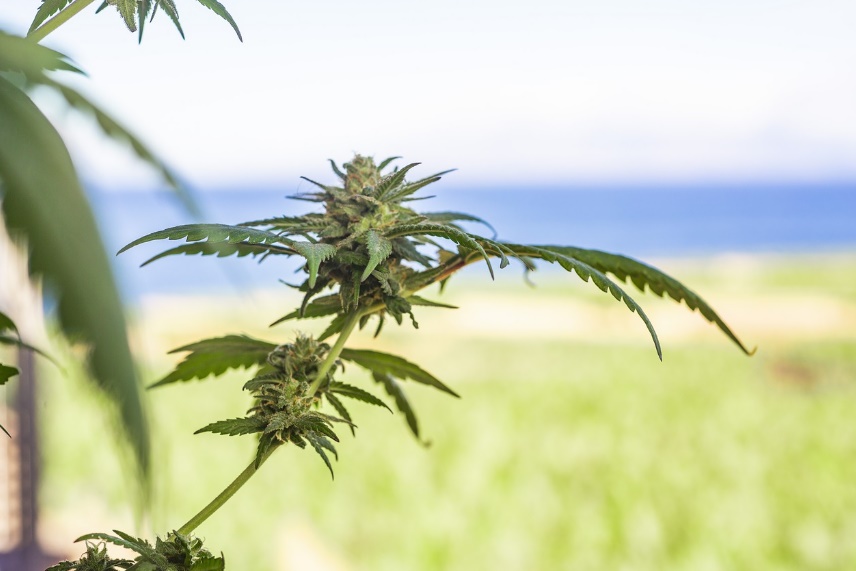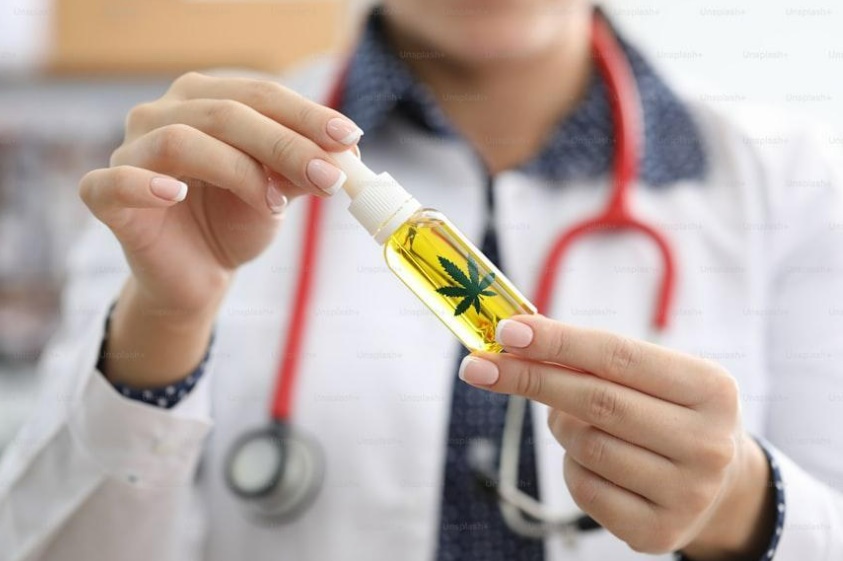
Medical cannabis is a term you’d often hear thrown around in regions undergoing—or having previously undergone—cannabis decriminalization. But what exactly does the term mean and why is it such an important buzzword in the world of legalized marijuana? In this article, we will attempt to provide an extensive answer to these questions and others surrounding what medical cannabis is, why it is different from other types of cannabis, and everything else you might need to know about it.
What is Medical Cannabis?
The term medical cannabis, or medical marijuana, can be somewhat misleading, often giving the impression that what is being referred to is something other than “regular” marijuana. In truth, however, this is not always the case. While medical cannabis in some cases might exist in forms other than regular marijuana flowers or leaves e.g. as extracts or cannabis-based products, this is not what really distinguishes medical cannabis from the other forms of the drug.
To put it simply, medical cannabis is cannabis prescribed for medical purposes. It is an umbrella term that covers essentially any type of cannabis or cannabis-based product that has been approved or endorsed by certified medical professionals for the treatment or management of medical conditions or symptoms.
So basically, the term medical cannabis doesn’t describe a particular TYPE of cannabis. Instead, it is a term used to describe the intent behind using cannabis; unlike adult-use cannabis which is used for recreational purposes, medical cannabis is cannabis intended for medical purposes.
What Constitutes as Medical Cannabis by Law?
Now you might be wondering; does this mean ANY cannabis is medical cannabis so long as it is being used to treat medical conditions? Well, the short answer to that is no.
Medical cannabis, at least in the confines of cannabis legislation, is a term determined by law. And since different countries have different stances on cannabis laws, what constitutes medical cannabis would vary depending on the country in question. So basically, while medical cannabis is cannabis intended for medical purposes, the law regulating what is permissible cannabis use for medical purposes might vary from country to country.
In Colombia for example, medical cannabis is pretty much cannabis prescribed by a licensed medical practitioner. This means for it to be considered medical cannabis, you must have a prescription for it. In the US, however, a prescription isn’t required, and instead, users looking to make use of medical cannabis require a doctor’s recommendation and a medical cannabis card.
Also, in Colombia, medical cannabis never comes in regular plant form. At least not at the time of creating this post. Instead, what you get is usually formulated cannabis-based products from certified suppliers. In the US, on the other hand, raw cannabis plants also fall under the umbrella of medical cannabis as long as users have a medical cannabis card.
So essentially, the answer to the question of what truly constitutes medical cannabis is simply whatever the law says it is in the country or region in question. To find out what constitutes medical cannabis where you reside, make sure to take a look at your local cannabis laws by contacting a local specialist.
Want to learn more about medical cannabis in Colombia? Schedule a Medical Cannabis Consultation with Dr. Rovio Vargas today!
What Does Science Say About Medical Cannabis?
Cannabis has a long history of medical use dating back several millennia. As far back as ancient China, ancient Egypt, and ancient India, cannabis has been employed for diverse medical purposes including anesthetics, pain treatment, appetite stimulation, and the treatment of insomnia. Although modern scientific research into the plant’s medical benefits doesn’t share as rich a history as its ancient counterpart, results still show a range of potential benefits.
According to the National Institute of Health (NIH), a comparative analysis of the reports of various research reports shows that cannabis and cannabinoids (extracts from the cannabis plants) show observable therapeutic effects in combating chronic pain, chemotherapy-induced nausea and vomiting, and multiple sclerosis (MS)-related spasms. It has also been proven to be effective at treating insomnia, and mental health issues like anxiety, depression, and the onset of panic attacks.
Medical Conditions Treated With Medical Cannabis
Following the legalization of cannabis for medical purposes, countries where medical cannabis has been made legal have seen increasing success in the use of cannabis for treating or managing the following medical conditions/symptoms:
- Chronic pain
- Chemotherapy-induced nausea and vomiting
- Multiple sclerosis (MS)-related muscle spasms
- Epilepsy and seizure disorders
- Insomnia
- Anxiety and depression
- Post-traumatic stress disorder (PTSD)
- Inflammation and autoimmune disorders
- Appetite loss and weight loss related to chronic illness
If you are dealing with any of the above medical conditions and live in a region where medical cannabis is legal, then medical cannabis might just be something you want to consider.
Side Effects of Medical Cannabis
Despite the many advantages of medical cannabis, it is important to note that it isn’t without its disadvantages. Like most other medical products, medical cannabis also shows notable side effects. These effects usually manifest in two ways; short-term effects and long-term effects.
Short-term side effects of cannabis may include:
- Altered sensory perception
- Feelings of euphoria
- Impaired cognitive ability
- Impaired memory
- Sedation and dizziness
- Disorientation and coordination issues
- Sluggishness and reduced reaction time.
Long-term side effects of cannabis may include:
- Increased risk of vascular diseases
- Increased risks of mental psychosis
- Increase risk of lung damage (when consumed by smoking)
Moderate use of cannabis exposes users to short-term side effects which are easily managed and pose no serious health risk. However, excessive use increases the risk of long-term side effects which could pose significant health risks. This is why a prescription is always encouraged for the use of medical cannabis.
Who is Medical Cannabis Not For?
Due to the side-effects of cannabis, medical cannabis is not recommended for the following individuals:
- Pregnant and breastfeeding women, children, and teenagers
Because cannais is a psychoactive drug, it could be harmful to individuals whose brains are still in a highly vulnerable developmental stage. Babies, children, teenagers, and even young adults under 25 (whose brains still aren’t fully developed) might be negatively affected by cannabis. Pregnant and nursing mothers should also avoid cannabis as cannabis in their system can also be transferred to their children.
- Individuals with a history of substance abuse
While much less addictive than other drugs, it is important that cannabis is still an addictive drug. Individuals with a history of substance abuse are likely to get hooked on medical cannabis which increases their risks of exposure to long-term side effects.
- People with severe mental disorders
Because cannabis increases the risk of mental psychosis, it isn’t recommended for individuals with severe mental disorders like schizophrenia, bipolar disorder with psychotic features, or other conditions characterized by hallucinations or delusions.
- Individuals taking medications that may interact negatively with cannabis
Medications like blood thinners or sedatives might interact negatively with cannabis. As such, individuals on medications like this should avoid medical cannabis.
Final Verdict
Depending on where you reside, medical cannabis might be a great option for treating or managing medical conditions or symptoms like chronic pain, insomnia, epilepsy, anxiety, and depression, PTSD, and many other medical conditions. Having said that, cannabis isn’t without its side effects, and these can range from short-term, easily managed effects, to long-term, irreversible conditions. As such, this is a treatment you do not want to undergo without first consulting with a specialist to determine whether it is an option you are ready for.
Another reason you’d want to contact a local specialist in medical cannabis is to understand your local cannabis law as this might vary depending on the country or region you reside in.




